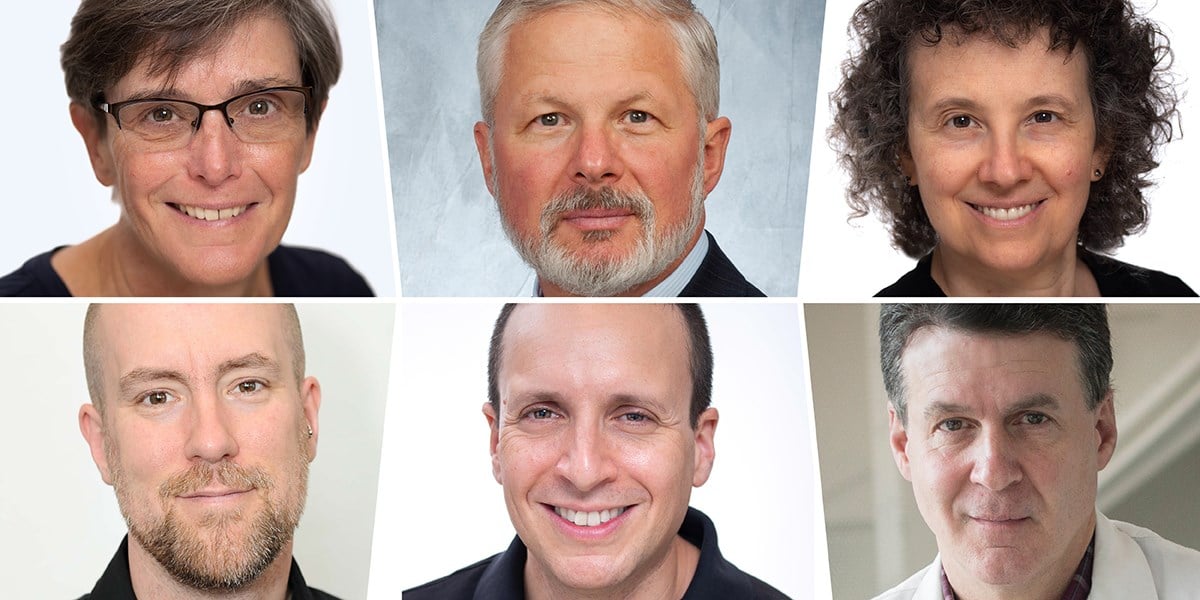SickKids-led research receives $23.3 million from the Canada Foundation for Innovation
Summary:
Researchers at SickKids and collaborating institutions receive Canada Foundation for Innovation (CFI) funding to support projects to improve child health.
Researchers at The Hospital for Sick Children (SickKids) and their collaborating institutions were awarded $23.3 million in funding for research infrastructure from the Canada Foundation for Innovation (CFI). From advancing diagnosis and treatment within the womb to enhancing our understanding of genomics and biological processes, these investments will support the development of innovative solutions to some of the most pressing challenges in health research.
“I would like to congratulate our scientists on their success and extend our gratitude to CFI for continuing to recognize research excellence at SickKids. These investments in our research infrastructure reflect the calibre of our scientists and the importance of their work in advancing further research and clinical impact,” says Dr. Gabrielle Boulianne, Chief of Research (Acting) at SickKids.
Along with successful funding from CFI, the purchase of infrastructure for these projects is dependent on receiving matching funding from the provincial government.

SickKids-led funded projects
Innovative solutions to treat illness in children before birth
Each year in Canada, more than 10,000 babies are born with fetal anomalies, many of which can be detected through prenatal education and routine screening. In 2018, SickKids and Mount Sinai Hospital, in partnership with Ontario’s Ministry of Health, launched the Ontario Fetal Centre (OFC), improving access for patients and their families to cutting-edge in-utero medical and surgical interventions for babies in utero.
Dr. James Drake, Surgeon-in Chief and Director of the Centre for Image Guided Innovation & Therapeutic Intervention at SickKids, and Dr. Tim Van Mieghem, Maternal–Fetal Medicine Specialist, Mount Sinai Hospital, have received more than $2.8 million to build the research arm of OFC, the Advanced Fetal Diagnostics and Therapy program.
The ambitious research program aims to tackle major technical challenges in robotics and imaging to improve difficult and often invasive clinical procedures used in utero. With this funding, the program will develop a novel image-guided fetal surgery platform that combines magnetic resonance (MR) and ultrasound imaging with millimetre-sized robotic tools. This will also advance MR-guided focused ultrasound, a non-invasive treatment for fetal applications, that will allow the development of innovative procedures for conditions that have never been treated in utero. In addition, their work to refine existing minimally invasive procedures will help to reduce the risks to both mother and baby such as pre-term labour and other maternal complications.
Collaborating with international leaders including Johns Hopkins University, the program will also uniquely train both surgeons and engineers, working together, in the development of advanced medical technology. With the success of this program, these innovations will be integrated into clinical practice and expanded worldwide.
A new era of Canadian genome research
Established in 2014 with a mission to enable genomic research across Canada, CGen received more than $11.1 million in funding from CFI to expand its national genomics capacity with the latest generation of sequencers and provide the informatics infrastructure needed to analyze and interpret this complex data.
Dr. Stephen Scherer, Scientific Director, CGEn-Toronto, and Director of The Centre for Applied Genomics (TCAG) at SickKids, and his colleagues - Dr. Mark Lathrop, Scientific Director, CGEn-Montreal, at The McGill Genome Centre at McGill University and Dr. Steven Jones, Scientific Director, CGEn-Vancouver, at Canada’s Michael Smith Genome Sciences Centre at the BC Cancer Research Institute - have already generated a massive 4.4 Petabases of sequence, representing over 24,000 genomes and 39,500 RNA-based experiments for over 2,200 laboratories.
This investment will enable the team to further generate genomic data that will underpin Canada’s greatest scientific discoveries, including advancing our understanding of complex conditions such as autism and cancer.
Understanding protein interactions in health and disease
Dysregulated protein interactions are key drivers of disease and facilitate infections by pathogens. Understanding the functional mechanisms of protein interactions is challenging due to their diverse nature, which exist across a continuum of lifetimes, stabilities and dynamics.
Drs. Julie Forman-Kay, Program Head and Senior Scientist, Molecular Medicine, and Simon Sharpe, Senior Scientist, Molecular Medicine, have received more than $1.6 million to build on the SickKids Structural and Biophysical Core (SBC) facility, established through prior CFI funding. The Toronto protein biophysics and structural biology community is internationally recognized for illuminating this continuum of protein interactions.
These new funds will support critical enhancements to cutting-edge research, knowledge creation, and training across biology and biophysics, including immunogen design for improved vaccines; inhibition of multidrug-resistant bacteria; targeting cardiovascular diseases; and roles of phase-separation in neurological disorders and cancer.
Leveraging advances in electron cryomicroscopy to accelerate discovery research
Recent advances in a structure-determination technique called electron cryomicroscopy (cryoEM) have revolutionized structural biology. CryoEM is now enabling determination of the atomic structures of molecules that have evaded traditional approaches.
Drs. P. Lynne Howell and John Rubinstein, both Senior Scientists in Molecular Medicine, have been awarded more than $7.5 million for a project called the Single Particle CryoEM Analysis Project (SPaCEMAP), which will leverage these advances to accelerate discovery research and enhance efforts to develop new therapeutics for cancer and infectious diseases. The infrastructure provided by the grant will make it easier to produce and screen samples of biological molecules before they are imaged on a high-resolution microscope.
The team will be working with study collaborators at the University Health Network (UHN), the University of Toronto (U of T) and Sinai Health to develop a shared resource that will benefit research initiatives at the institutions.

